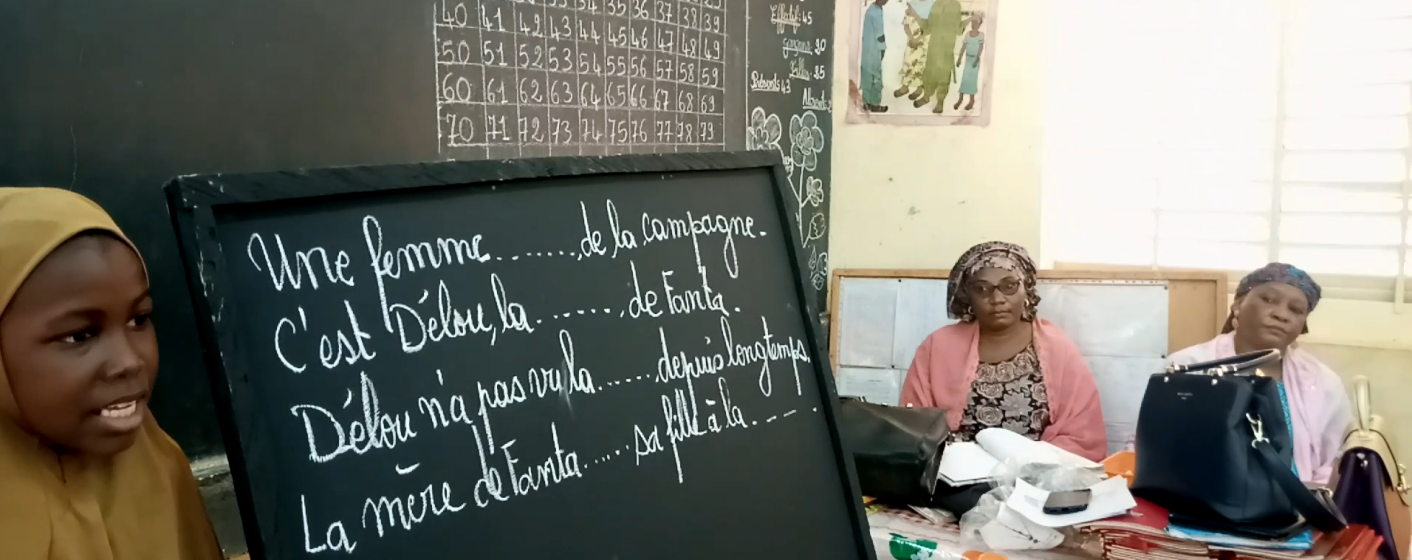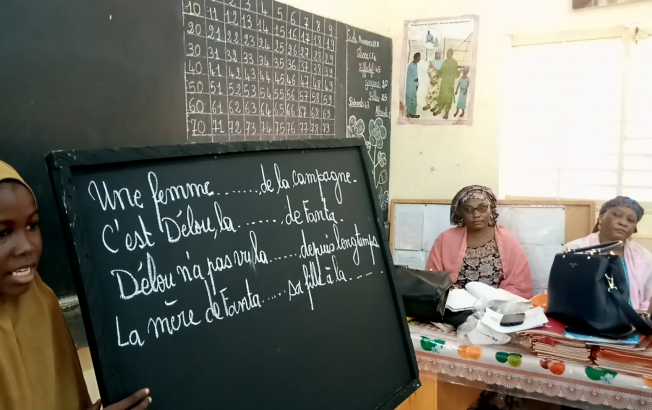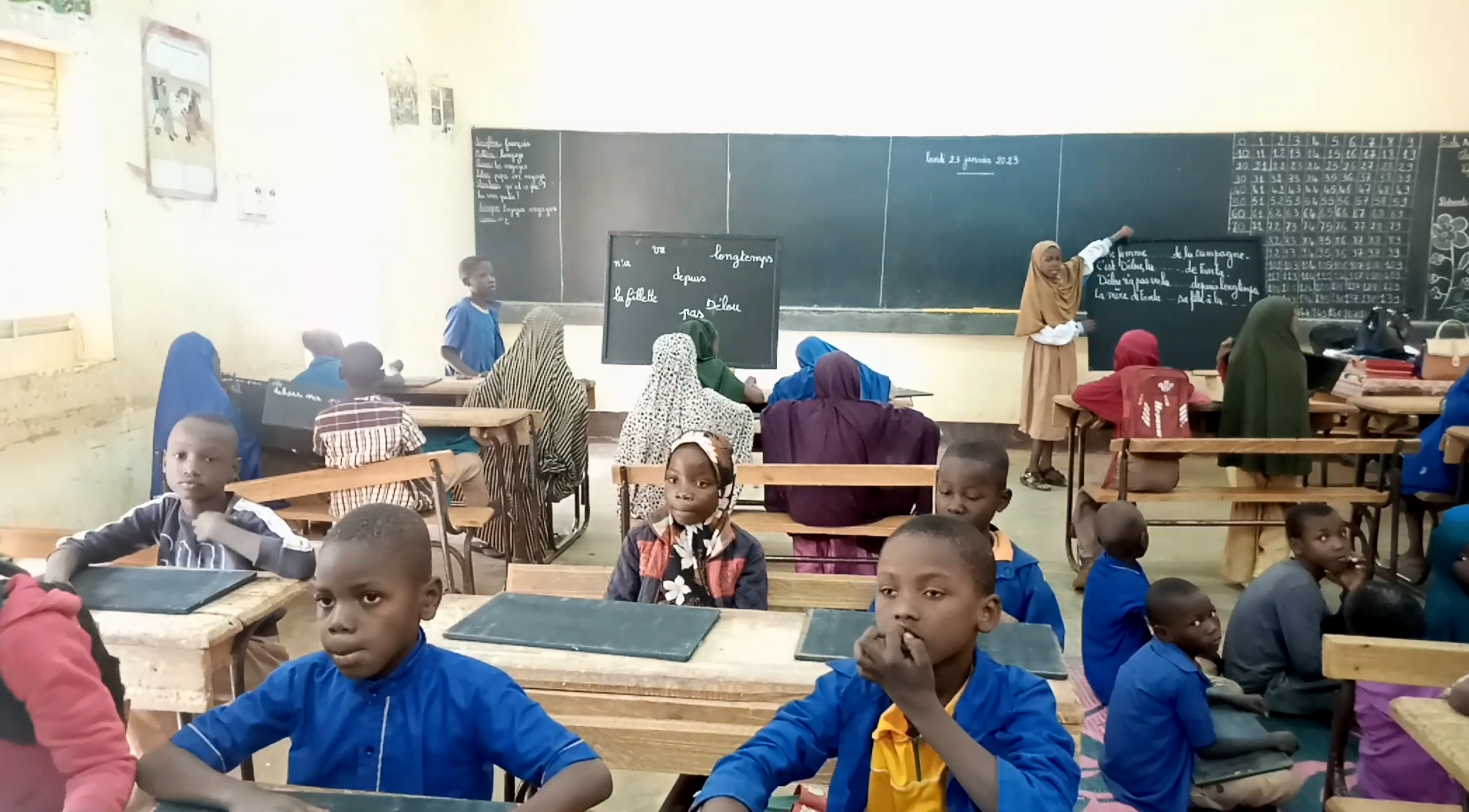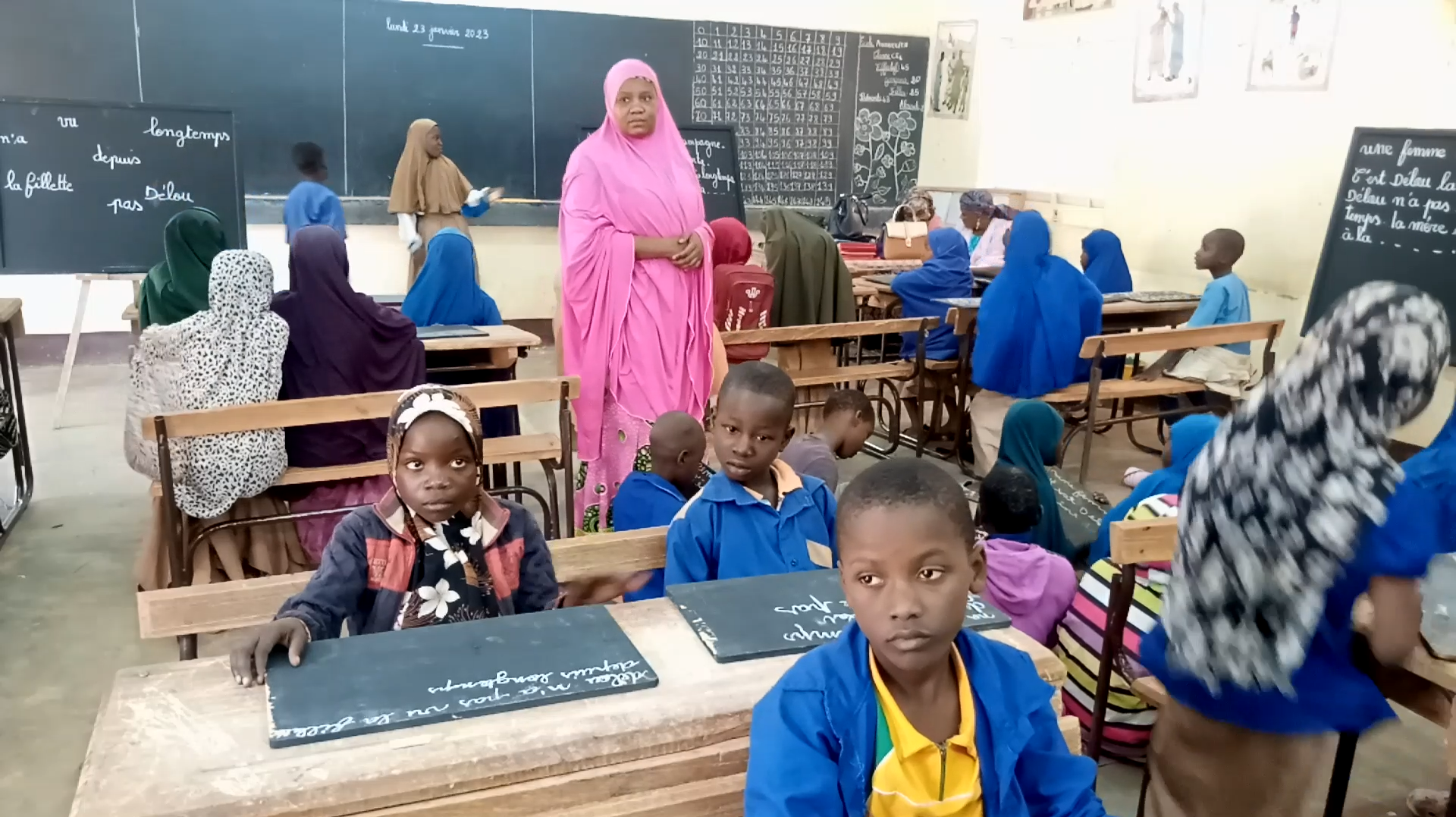Tutored micro-teaching workshops: born in the classroom, this innovative Nigerien approach could become part of the official national curriculum
Some teachers in Niger have come up with the idea of forming small groups of students, supervised by a peer, to ensure that all students acquire basic knowledge. With the support of IIPE-UNESCO, this practice is well on its way to becoming a genuine method aimed at improving learning outcomes.
*This article concerns activities carried out before July 2023.
To enhance the quality of learning and students' academic performance, it is worthwhile to explore successful practices already in place in schools. Who better than teachers and school principals to devise solutions to the challenges faced in classrooms? Some educators have implemented unexpected practices rooted in their realities, which work well but often don't reach policymakers.
In Niger, teams from the Ministry of National Education, were trained to visit schools as part of the Support for quality education management program, implemented by IIPE-UNESCO Dakar and supported by the French development agency, discovered an innovative approach in several schools in the Zinder and Tahoua regions.
To ensure that all students grasp concepts already covered in class, teachers form small working groups of five or six students of the same age. These groups are led by student "tutors" chosen for their willingness to share knowledge and prepared by the teacher, motivating their peers through peer influence.




